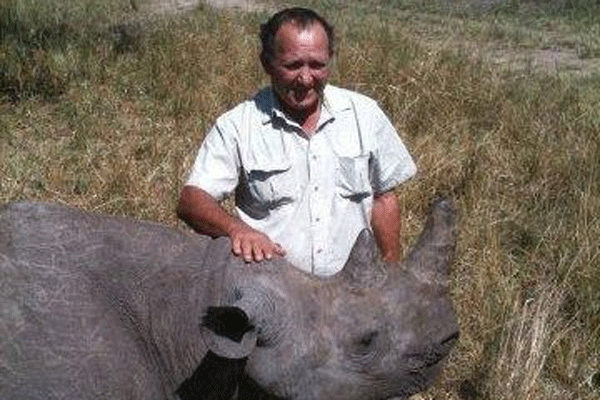
Zimbabwe seems to have degenerated into a nation hostile to conservationists that preach the environmental protection gospel. The hostility is especially seen to reach fever pitch when it involves wildlife protection.
environment By Chipo Masara

First it was Sharon Pincott — an Australian woman famed for her profound dedication to the Presidential Elephants that saw her abandoning her comfortable job to come spend 13 years of her life living in a bushy Hwange area protecting the herd — before constant pestering and later serious threats forced her into throwing in the towel.
She left Zimbabwe in a hurry as she felt her life was increasingly getting at risk from powerful forces fighting to take over the area housing the elephants she was fighting to protect. The latest case is that of Johnny Rodrigues, the vocal chairman of the Zimbabwe Conservation Task Force (ZCTF). Just like Pincott, Rodrigues is passionate about wildlife protection and his organisation had become a thorn in the flesh for especially the Zimbabwe Parks and Wildlife Authority (ZimParks), that he on many occasions accused of working hand in glove with some corrupt government officials and the Chinese to not protect, but endanger the country’s wildlife. Rodrigues recently moved to Europe, citing “security reasons” as being behind his suddenly leaving the country. The Standard’s environment writer Chipo Masara (CM) spoke to Rodrigues (JR) to find out more. Below are excerpts of the interview.
CM: Exactly who targeted you and how did they do it?
JR: I was at risk of getting jailed or assassinated. I had eight attempts on my life for exposing the chefs who are the biggest poachers. If I didn’t get out I would have faced imprisonment or would have disappeared.
CM: Where did you seek refuge?
JR: I am in Europe. Somewhere safe so I can expose those corrupt officials. I cannot say much about my family as I still have people there.
- Chamisa under fire over US$120K donation
- Mavhunga puts DeMbare into Chibuku quarterfinals
- Pension funds bet on Cabora Bassa oilfields
- Councils defy govt fire tender directive
Keep Reading
CM: Will ZCTF still be operating in Zimbabwe?
JR: I have people in the field carrying out the work. ZCTF still has people there and will always try to preserve the wildlife and empower the poor rural folk by kick starting small businesses for the communities.
CM: As ZCTF, what would you say has been your biggest achievement to date?
JR: Our biggest achievement was saving Hwange National Park from collapse in 2005 and relocating animals and assisting with anti-poaching patrols.
CM: What drove you into the work that you do for the country’s wildlife?
JR: My passion stems from my wish to see these animals being protected and not killed or poached so that we can market the natural habitat for tourists to see them in their environment and habitat. I also wish to see poor rural folk benefitting from the tourism factor as we become true wildlife guardians for the future generations.
CM: What do you think of the work that ZimParks is doing?
JR: The (ZimParks) directors are Zanu PF cronies. The parks and wildlife authority is corrupt and they are easy to bribe. The authority is not run in a professional manner; it is plain mismanagement and it is corrupt to the core.
CM: What measures do you think need to be put in place to better protect the wildlife?
JR: Basically, [President Robert] Mugabe and his pack of merry men must be forced out of office. They are corrupt and evil. Once they are gone the wildlife and the environment might have a chance as they are [currently] exporting everything to China. The Chinese are going to destroy the future generations’ heritage— the wildlife.
A lot of the species will become extinct in the next 10 years from poaching and the export of animals out of Africa. We need qualified personnel and strong leadership.
CM: Do you think that the abuse of wildlife will ever stop?
JR: You won’t stop it [abuse of wildlife] until those guys in power are removed. They should go and form a government in Venus or somewhere where they can do what they like and take their bond notes with them.
CM: Any plans to come back to Zimbabwe and carry on with the work ZCTF has been doing?
JR: Yes, I will be back once these corrupt people have been imprisoned or fired.
CM: Can you tell me a bit about yourself. Where were you born and how did you get into conservation work?
JR: I was born in Madeira, Portugal and came to Rhodesia (now Zimbabwe) when I was four and lived there all my life. I have always had a passion for wildlife protection and believe that these animals should have the space to live their natural lives without being threatened by hunting or poaching. God gave them to us so let’s be the right guardians for them.











